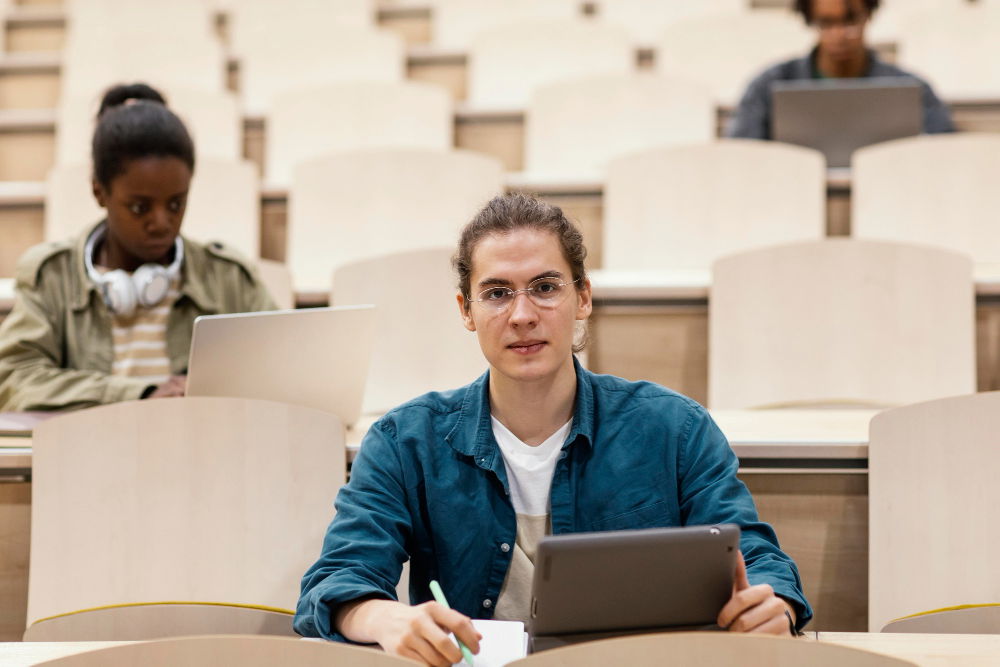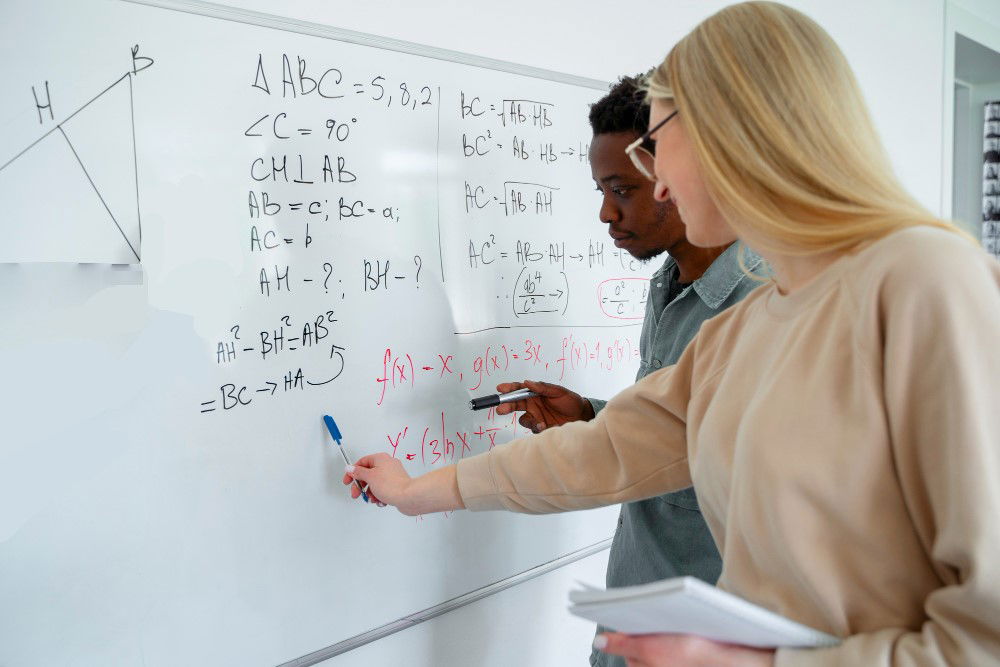50 Unique IA Maths Topics Ideas that Actually Work

Internal Assessment (IA) is a crucial component of your IB Maths journey. As exciting as an independent investigation may be, many struggle from the very beginning: finding the perfect topic is harder than it seems. If you’re one of these students, we’re happy to offer a few fresh IA Maths ideas you can try.
From algebra and geometry to calculus and statistics, these ideas should spark your inspiration and help you approach your IA research project with confidence.
Why it is important to choose unique IA Maths Ideas
Below, you will find 50 diverse IA Maths topics to spark your creativity for the Internal Assessment. Remember, these are just starting points, not blueprints. Copying a title and question directly is not the best approach.
Firstly, thousands of IB students worldwide submit IAs, and your teacher has likely seen similar ideas before. You need to make sure your topic and research question is unique to you to demonstrate independent thinking and effort. What’s even worse, direct copying violates academic integrity. In fact the IB view this as plagiarism.

Nevertheless, these 50+ IA Maths ideas can serve you well as examples to help you come up with your own ideas. You just need to incorporate specific details (location, time frame, or additional factors) to personalise the topic. For example, instead of simply “Modelling the spread of infectious diseases,” you could explore:
- Modelling the spread of influenza in London during winter 2024-2025.
- Prediction of the spread of COVID-19 in densely populated areas compared to rural areas during future outbreaks.
- Analysing the effectiveness of different social distancing measures in controlling the spread of a disease in a specific country.
However, if you’re not inspired by any of the topics or want to figure out how to choose a topic on your own, use our guide – How to choose your Maths IA topic.
IA Maths Ideas You Can Try
Without further ado, let us provide dozens of IA Maths ideas that can help inspire you to write a high-scoring research report.
Modeling and Simulation
- Modeling the spread of infectious diseases. You can explore different models (e.g., the SIR model) and analyse their effectiveness in predicting real-world scenarios.
- Optimizing resource allocation in disaster relief. Apply mathematical modelling to determine the most efficient distribution of resources in response to natural disasters.
- Modelling population growth and sustainability. Explore different models for population growth and analyse the implications for sustainability.
- Simulating Manhattan Traffic with Agent-Based Modelling. Apply program agents with rules to simulate realistic traffic flow in Manhattan.
- Modelling Soccer Ball Trajectories with Calculus. Use calculus and physics to model the flight of kicked soccer balls.
- Modelling Predator-Prey Dynamics with Differential Equations. Use differential equations to model the cyclical relationship between a predator and prey population.
- Applying Trigonometric Functions to Model Planetary Motion. Investigate the role of trigonometric functions to model the orbits of celestial bodies and to predict their positions and movements over time.
- Exploring the Connection between Differential Equations and Population Dynamics. Analyse the maths behind the models of population growth, decay, as well as interactions between different species. Explain the role of predictions in determining population trends.
Data Analysis and Statistic
- Analysing voting systems and their fairness. Analise different voting systems (e.g., ranked-choice, instant-runoff) and evaluate their mathematical properties for fairness.
- Analysing sports statistics and predicting performance. Investigate how statistics are used in sports to analyse past performance and predict future outcomes.
- The mathematics of fairness in elections. Analyse different apportionment methods (e.g., Hare quota, Saint-Lague method) and their implications for political representation.
- The mathematics of social media algorithms. Analyse how algorithms are used to personalise and recommend content on social media platforms.
- Analysing the Impact of Probability and Statistics in Sports Analytics. Explore the application of probability and statistics to analyse various aspects of sports, for instance, player performance. How can mathematics help predict game outcomes as well as make informed decisions in sports betting and team management?
- Using Statistics to Evaluate the Effectiveness of Medical Treatments. Explore how statistics helps to design clinical trials, analyse medical data, as well as evaluate the efficacy and safety of medical treatments.
- Predicting NBA Player Performance Through Regression Analysis. Analyse sports data sets to identify trends and make predictions.
- Analysing Risk Using Markov Chains. Implement Markov chains to analyse risk and probability scenarios.
- Analysing the Impact of Probability and Statistics in Quality Control. Investigate how product quality monitoring, defect identification, and standard compliance can benefit from probability and statistics.
Applied Mathematics
- The mathematics of fair division problems. Explore different methods for dividing resources fairly (e.g., the “cake-cutting” problem) and analyse their properties.
- Exploring the Applications of Linear Programming in Supply Chain Management. Investigate how linear programming can optimise inventory levels, production schedules, as well as transportation routes to reduce costs and improve efficiency in supply chains.
- Applying Calculus to Optimise Travel Routes and Logistics. Analyse how to determine the most efficient travel routes taking into account factors such as distance, travel time, fuel consumption, and traffic conditions.
- Applying Calculus to Optimise Investment Strategies in Finance. Analyse the application of calculus in various investment strategies such as portfolio allocation or risk management. How can they help maximise returns on investments?
- Applying Linear Programming to Optimise Production Schedules in Manufacturing. Analyse how linear programming can optimise production schedules, minimise production costs, and improve efficiency in manufacturing processes.
- Finding shortest paths using graph theory. Find the shortest path between two points on a map using graph theory.
- Finding the Optimal Bus Routes in London Using Graph Theory. Explain how to find the shortest path between two points on a map using graph theory.
- Portfolio Optimization with the Markowitz Model. Use the Markowitz model to construct optimal investment portfolios.
- Utilising Vectors to Analyse Forces and Equilibrium in Engineering. Analyse how one can use vectors to represent forces acting on objects. Additionally, determine the conditions for equilibrium in mechanical systems.
- Investigating the Role of Calculus in Optimising Renewable Energy Production. Analyse how calculus can be used to determine the optimal tilt angle of solar panels, the ideal size of wind turbines, as well as the best locations for hydroelectric power plants to maximise energy production.
Practical Math
- Mathematical modelling in finance. Explore how mathematics is used in finance, such as pricing options, calculating loan payments, or managing risk.
- The Monty Hall problem and probability in decision-making. Explore the Monty Hall problem and apply concepts of conditional probability to real-world scenarios.
- The mathematics of optimal packing. Analyse different strategies for packing objects efficiently in various contexts (e.g., sphere packing, bin packing problem).
- Analysing the Role of Probability in Predicting Weather Patterns. Investigate how probability is used in weather forecasting to predict the likelihood of precipitation, temperature, wind speed, and other weather conditions.
- Investigating the Use of Matrices in Image Processing and Computer Graphics. Explain the role of matrices underlying image processing techniques such as filtering, compression, and enhancement.
- The mathematics behind machine learning algorithms. Explain how machine learning algorithms work by exploring the underlying mathematical concepts (e.g., linear regression, gradient descent).
Geometry and Visualisation
- Fractal geometry in nature. Analyse the self-similar patterns of fractals found in natural phenomena like coastlines or snowflakes.
- Exploring the Relationship between Topology and Graph Theory. Investigate the connections between topology and graph theory, and how they can be applied to analyse networks, maps, and other structures.
- Modelling Romanesco Broccoli Fractals with L-Systems. Use L-systems to generate and analyse fractal patterns.
- Analysing Alhambra Tiling Patterns. Use geometry to study and recreate intricate tile patterns.
- Applying Linear Algebra to Model Electrical Circuits. Investigate how linear algebra can be used to analyse electrical circuits, determine current and voltage distributions, and design efficient electrical systems.
- The mathematics of computer graphics. Explore how mathematical concepts like 3D transformations and ray tracing are used to generate computer graphics.
- The Use of the Golden Ratio in Art and Nature. Investigate occurrences of the golden ratio in art, architecture, and nature.
- Exploring the Relationship between Complex Numbers and Fractals. Investigate the connection between complex numbers and fractals. How can complex numbers be used to generate and analyse intricate geometric patterns?
- The mathematics of music: Exploring scales, chords, and musical harmony. Analyse the mathematical relationships between notes, scales, and chords in music theory.
Book free trial with our certified IB Maths teachers today
100 % of tutors are certified teachers and examiners
Number Theory and Carthography
- Cryptography: Breaking simple ciphers and analysing encryption algorithms. Analyse different encryption techniques and explore strategies for breaking simple cyphers.
- The mathematics of cryptography: Exploring public-key cryptography and its applications. Analyse public-key cryptography and its importance to secure communication (e.g., RSA encryption).
- Investigating the Applications of Number Theory in Cryptography. Analyse encryption and decryption algorithms that use number theory. How can it help ensure the security of digital communications?
Game Theory
- The mathematics of games and puzzles. Analyse the strategies and mathematical principles behind popular games like Sudoku or Rubik’s Cube.
- Investigating the Applications of Game Theory in Economics and Politics. Explore how game theory can predict the outcomes of competitive situations and impact strategic decision-making.
- The mathematics of voting systems and strategic voting. Explore how strategic voting can influence the outcome of elections and analyse its implications for different voting systems.
Chaos Theory
- Exploring chaos theory and its applications. Investigate the unpredictable behaviour of complex systems and their applications in various fields (e.g., weather forecasting, economics).
- Analysing the Impact of Chaos Theory in Weather Prediction. Investigate how chaos theory affects weather prediction, and how it can be used to improve the accuracy of long-term weather forecasts.
IA Maths Ideas: Conclusion
With a good Maths IA topic idea, you’ll be well on your way to conducting a successful independent investigation. Sometimes, however, even the greatest ideas require extra help to turn into well-written project reports. If you, too, struggle at any stage of your exploration, don’t hesitate to reach out to TutorsPlus.
Our team of experienced IB Maths tutors can provide guidance and support throughout the entire process. You can count on us to refine your topic and organize your IA Maths ideas into logical and well-structured writing. Additionally, we can provide feedback as well as resources to improve your mathematical skills.
Feel free to contact TutorsPlus at 022 731 8148 and . We are always here to help you make the most of your IB experience.
By Sara Lloyd
Sara has been an education consultant for TutorsPlus for 15 years, and is an expert on international IB education. She is also a parent of two lively children.















